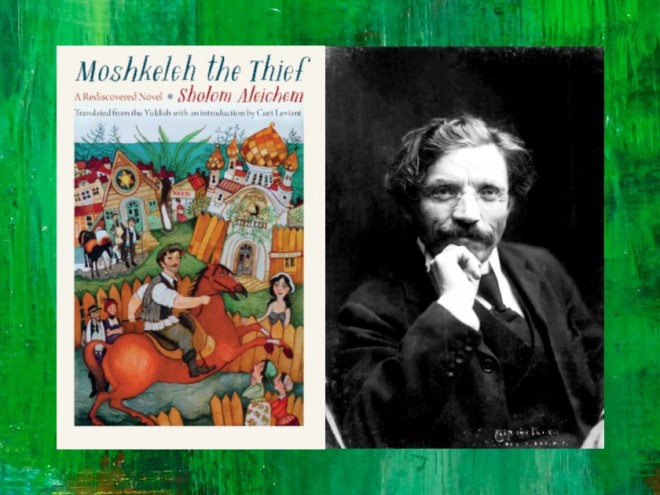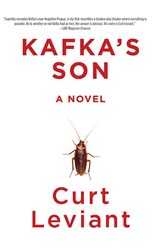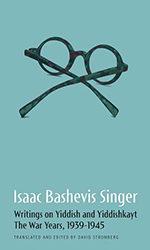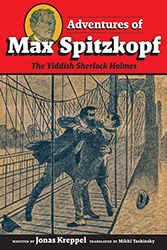Moshkeleh the Thief isn’t quite a rediscovered novel, as its subtitle claims. It’s true that this (excellent) translation is the first time this particular story has been rendered in English. It’s also true, as the introduction notes, that its lack of inclusion in the standard twenty-eight volume collection of Sholom Aleichem’s masterworks (Ale Verk) means that few outside of the most engaged circle of Yiddish readers would have been aware of its existence prior to now. From the perspective of linguistic accessibility, this is certainly a welcome treasure. But another way in which Moshkeleh isn’t quite rediscovered is in its subject matter: readers with even a passing familiarity with Sholom Aleichem (and, more to the point, Tevye the Dairyman, his most famous character) will find themselves wondering if they have encountered this story before. This is not a critique — defining shtetl literature for generations is precisely what Sholom Aleichem is known for.
Moshkeleh follows the misadventures of a Moshke, a so-called horse thief and person of equal ill reputation and legend in his village somewhere in the Pale of Settlement. He becomes embroiled in an effort to recover a daughter of one Chaim Chosid, who has run off to a monastery with a non-Jew. The beats are familiar, but hardly unwelcome; even in its more repetitive moments, Moskeleh gives the reader a glimpse into a world that has vanished, a world that is as complex as it is consistent.
Moshkeleh was originally serialized in a Warsaw paper, and thus the chapters are digestible and paced to leave the reader wanting more. It is a quick read, a total immersion into Moshke’s world that can be finished over the course of an afternoon. Perhaps most unique in this text is the characters’ relationships to non-Jews — something notably on the fridges of much of Sholom Aleichem’s other work, and Yiddish literature from this era more broadly. Curt Leviant, the translator, notes in the introduction, “Reading Moshkeleh Ganev, we feel as if previously unknown photographs of Russian life have suddenly been unearthed…Sholom Aleichem thus expands our understanding of East European Jewish and non-Jewish society, and offers us a glimpse of a segment of a population that existed, but by a conspiracy of silence, literary convention, or shame, was kept behind closed shutters in literature.”
Moshkeleh the Thief is a treat to be savored for fans of Sholom Aleichem’s work. It is not wholly unique, but it doesn’t need to be — the excellence of the translation brings his wit and skill to life in English. Aleichem is not unlike one of his own delightful character descriptions in Moshkeleh: “choosing his words very carefully, like someone slowly eating matza.”
Justine Orlovsky-Schnitzler is a frequent contributor to the Jewish Women’s Archive and Lilith magazine, living and working at home in the South.





